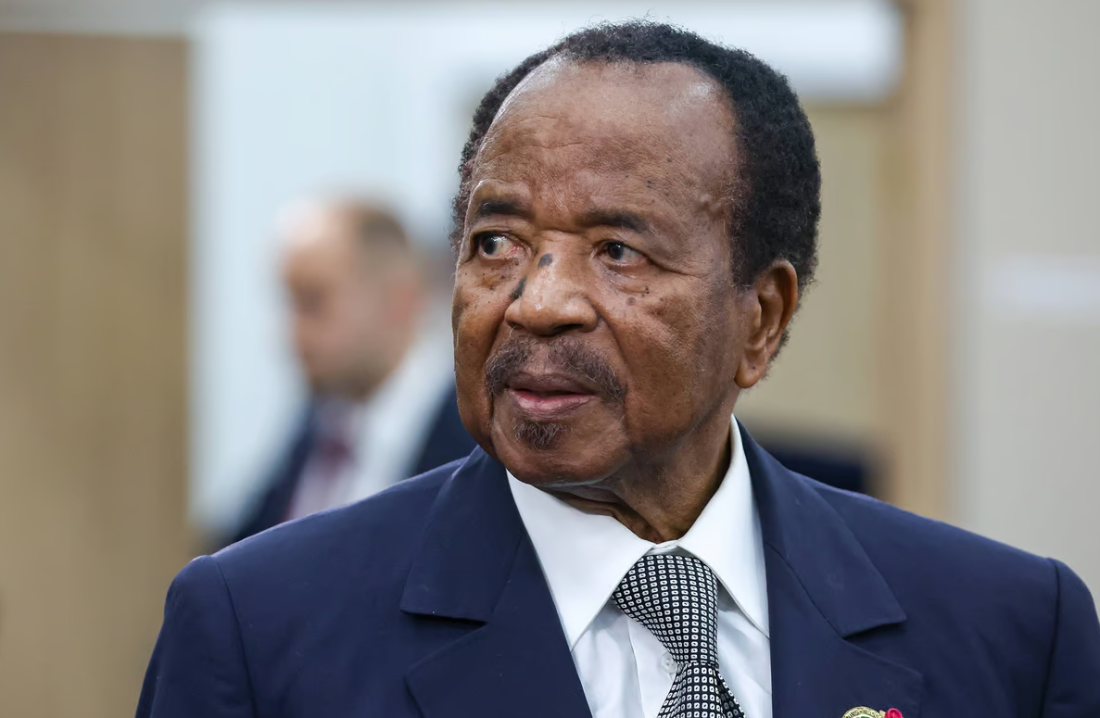Copyright thenewcrusadingguideonline

By _Richard Dablah Cameroon reads like a ledger whose columns have been rewritten so often that the balance looks inevitable. For more than four decades, Paul Biya has converted the ordinary business of rule into a conservative mathematics: move the sums, hide the ledgers, keep the accounts inscrutable. The headline this month — the announcement of his re-election and the eruption of protests that followed — is a simple entry in a long calculation. It matters because the arithmetic behind it is the politics: who gets counted, who counts the votes, and how the cost of dissent is tallied. The first term of that arithmetic is dependency. Jobs, licences, access to contracts — the everyday yields of office — have not been incidental to governance; they are its currency. When entire careers are convertible into loyalty, when local ambition is routinely exchanged for permission, the centre purchases obedience one small transaction at a time. That transaction is not merely corruption in the abstract; it is a social technology that reorders aspiration into petition. The effect is predictable: when the next move requires asking rather than building, a polity reroutes its energies toward survival inside the system rather than invention. What Biya has built is therefore an economy of preservation, not of renewal. The ministries, party organs and security nodes were retooled into mechanisms of continuity. Appointments become accounts; licences and permits are small ledgers recording who has been counted and who remains invisible. Over decades this conservative arithmetic hardened into a grammar of rule — not because of ideological fidelity but because the incentives made obedience rational and improvisation dangerous. Security is its own chapter in the same calculation. Commands are deliberately diffused; responsibilities overlap; intelligence nodes proliferate. This is not accidental sclerosis but a deliberate architecture: prevent a single hand from commanding force and you convert potential conspiracies into mutual distrust. The military and security services become mosaics of guarded fiefdoms whose cohesion is ritualized and fragile. Remove the architect and those rituals may not hold; memory of power can quickly become appetite. The ruling party is less a political movement than a vault. Its instinct in any moment of instability is continuity, because continuity preserves the existing claims and contracts that reward insiders. The plausible successor is often the one who can reassure external partners — financiers, diplomats, and firms — that contracts will be honoured and rents will flow uninterrupted. But parties designed as custodians of a single ruler lack the internal mechanisms to renew themselves; they replicate the logic of endurance in new faces and therefore reproduce the same pathologies. The Anglophone fracture is not an incidental domestic problem; it is a central variable in the country’s future arithmetic. For years the centre allowed grievance to calcify in English-speaking provinces, turning education and administration into fault-lines. The human cost is immense: shuttered schools, hollowed communities, and a cycle of displacement and violence. In a transition these wounds will not vanish; they will be repurposed. Exiled leaders, local militias and foreign sponsors will find purchase where the state once sought to absorb dissent. What was tolerated as a pressure valve may become a fissure that shapes the map of any post-Biya settlement. Outside actors are part of the ledger. Paris’s historic affinities and China’s credit-first, governance-secondary approach both alter the returns for elites. French caution prefers managed transition and preserved access; Chinese instruments prefer predictability and repayment. When foreign capital is readily available, continuity becomes more lucrative. When preferences among external stakeholders diverge, the bargains that smoothed governance begin to fray. Any strategy that treats Cameroon’s problems as purely domestic ignores these external coefficients. Yet there are pressure points — levers that, if engaged intelligently, change incentives even in an ossified system. The first is the personal: a system built around one body is fragile at the instant of that body’s removal. Succession without institutions invites scramble. The second is information: diasporas, independent reporting and social media have pierced the fog and created corridors of alternative narrative that undercut the monopoly of the centre. The third is the diversity of external stakeholders: disagreement among lenders and investors can strip away the lubricants of silence and force transparency. None of these is a guarantee of democratic renewal, but each can be used tactically. Youth are a different kind of variable. A generation that has known only one ruler and little prospect has anger that is existential rather than doctrinal — a refusal of waiting. Smartphones have widened horizons and shortened patience. That energy can become a constructive force or a chaotic terrain exploited by predatory actors in uniform or under foreign banners. The challenge for any political strategy is to translate youthful refusal into organized, institution-building pressure rather than episodic, unchanneled rage. China’s role is pragmatic and patient. Infrastructure loans, telecoms and mining concessions do not bind China to democratic outcomes; they bind it to predictability and contractual continuity. In any interregnum Chinese investments will be oriented toward stability that protects balance-sheet outcomes. France and other Western actors, conversely, will favour managed transitions that minimize disruption to strategic access. Those differing external logics will shape which local factions can credibly promise to keep contracts and quiet markets. Three operational scenarios deserve attention. Collapse. Sudden death or incapacitation triggers command confusion, military infighting, and regional rebellions. Ministries improvise; provinces take initiatives; external “peacekeepers” or interventions become tempting. This path risks fragmentation along already deepened fault lines. Ceremonial continuity. The RDPC installs a loyalist and reassures partners. Ribbons are cut, contracts signed, and the mechanics of patronage continue under new names. Short-term stability is achieved at the cost of institutional sclerosis and deferred reform. Controlled transition. The least probable yet most constructive path: a compact among reform-minded elites, security actors willing to trade immediate spoils for institutional guarantees, and external partners demanding verifiable reforms. This would yield limited pluralism and slow rebuilding of trust — boring, incremental, but far more durable than spectacle. The practical counsel is granular and strategic, not moralizing. Protect civic spaces that allow association and truth-telling. Condition public finance and credit on governance benchmarks, not appearances. Rewire command incentives in the security services so professional merit, not patronage, is rewarded. Support civil society organisations that translate digital energy into institutional capacity. These are unglamorous tasks — lawyers changing procurement rules, officers redefining chain-of-command incentives, financiers writing transparency clauses into loan contracts — but they are the only reliable way to alter the arithmetic that produces durable authoritarianism. Power hoarded for decades is a habit of mind as much as an institutional design. Removing the man may be the easiest step; excising the reflexes he taught his state is the sore work that follows. Those who would advise, intervene or invest must ask not only whether to act, but how to act so as to build rather than to replace; to rewire incentives rather than paper over them. Cameroon’s ledger no longer balances the way it once did — the arithmetic is showing its errors. If change is to be more than a transfer of spoils, actors inside and outside the country must think like builders: patient, precise and politically literate.



